
The Enchanting Heart of French Canada: Quebec City
Quebec City, a jewel of French Canada, is a city where history and culture come alive. Nestled along the banks of the St. Lawrence River, this UNESCO World Heritage site offers a unique blend of European charm and North American vibrancy. With its cobblestone streets, ancient architecture, and rich French heritage, Quebec City feels like a trip to a quaint European village without ever leaving the continent. Begin your adventure in Old Quebec, the fortified heart of the city, where you can explore iconic landmarks such as the Fairmont Le Château Frontenac, a grand hotel that dominates the skyline. Wander through the narrow streets of Petit Champlain, one of North America’s oldest commercial districts, and immerse yourself in the lively atmosphere of Place Royale, a historic square that dates back to the 17th century. Beyond the old town, Quebec City is a treasure trove of cultural experiences. Visit the Musée de la civilisation to delve into the region's history and culture, or take a stroll through the Plains of Abraham, a vast urban park that was the site of a pivotal battle in 1759. No visit to Quebec City would be complete without savoring its culinary delights, from traditional French cuisine to local specialties like poutine and maple syrup treats. In winter, Quebec City transforms into a snowy wonderland, with the world-famous Winter Carnival offering ice sculptures, parades, and tobogganing. In summer, the city comes alive with festivals, outdoor concerts, and vibrant street performances. Whatever the season, Quebec City invites you to experience its rich tapestry of history, culture, and natural beauty.
Local tips in Quebec City
- Learn a few basic French phrases; locals appreciate the effort and it enhances your experience.
- Visit during the Winter Carnival for a unique and festive experience.
- Wear comfortable shoes; the cobblestone streets can be tricky to navigate.
- Try the local cuisine, especially poutine and maple syrup products.
- Take a guided tour to fully appreciate the history and architecture of the city.
Neighbourhoods in Quebec City
The Enchanting Heart of French Canada: Quebec City
Quebec City, a jewel of French Canada, is a city where history and culture come alive. Nestled along the banks of the St. Lawrence River, this UNESCO World Heritage site offers a unique blend of European charm and North American vibrancy. With its cobblestone streets, ancient architecture, and rich French heritage, Quebec City feels like a trip to a quaint European village without ever leaving the continent. Begin your adventure in Old Quebec, the fortified heart of the city, where you can explore iconic landmarks such as the Fairmont Le Château Frontenac, a grand hotel that dominates the skyline. Wander through the narrow streets of Petit Champlain, one of North America’s oldest commercial districts, and immerse yourself in the lively atmosphere of Place Royale, a historic square that dates back to the 17th century. Beyond the old town, Quebec City is a treasure trove of cultural experiences. Visit the Musée de la civilisation to delve into the region's history and culture, or take a stroll through the Plains of Abraham, a vast urban park that was the site of a pivotal battle in 1759. No visit to Quebec City would be complete without savoring its culinary delights, from traditional French cuisine to local specialties like poutine and maple syrup treats. In winter, Quebec City transforms into a snowy wonderland, with the world-famous Winter Carnival offering ice sculptures, parades, and tobogganing. In summer, the city comes alive with festivals, outdoor concerts, and vibrant street performances. Whatever the season, Quebec City invites you to experience its rich tapestry of history, culture, and natural beauty.
When is the best time to go to Quebec City?
Iconic landmarks you can’t miss
Montmorency Falls
Experience the majestic Montmorency Falls, higher than Niagara, with stunning views, thrilling activities, and historical intrigue just minutes from Québec City.
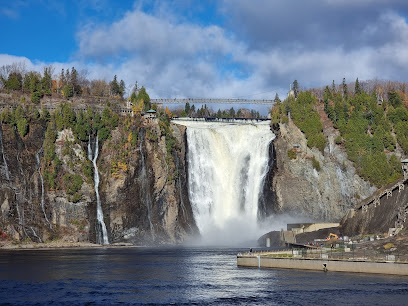
Fairmont Le Château Frontenac
Discover timeless luxury at Fairmont Le Château Frontenac, a historic landmark in the heart of Quebec City, offering breathtaking views and rich heritage.

Plains of Abraham
Experience the beauty and history of the Plains of Abraham, an iconic park in Quebec City that offers a perfect blend of nature and heritage.
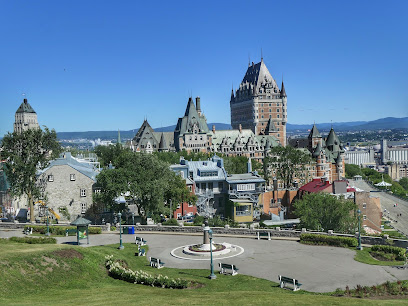
The Citadelle of Québec
Explore The Citadelle of Québec, a historic fortress and museum offering stunning views, military heritage, and enriching exhibits in the heart of Québec City.
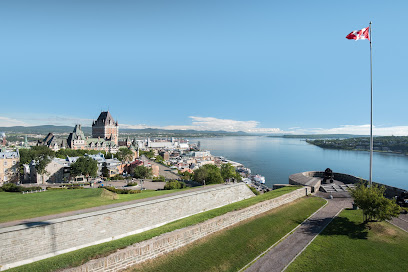
Quartier Petit Champlain
Explore the enchanting Quartier Petit Champlain, a historic shopping district in Quebec City that offers unique boutiques and vibrant local culture.
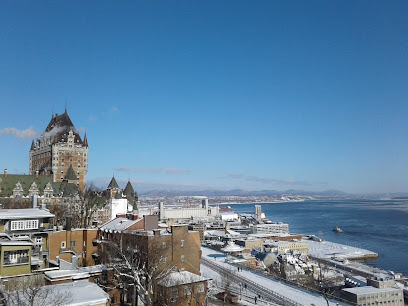
Place D'Youville
Experience the vibrant atmosphere and cultural richness of Place D'Youville, a stunning park in the heart of Quebec City, perfect for relaxation and outdoor fun.
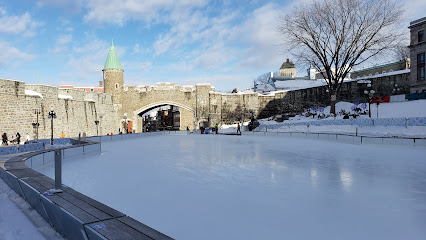
Domaine de Maizerets
Discover the serene beauty of Domaine de Maizerets, a stunning state park in Québec City perfect for hiking, picnicking, and enjoying nature.
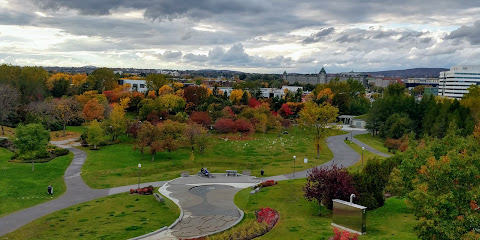
The Battlefields Park
Explore Quebec City's historic Battlefields Park: a blend of history, nature, and recreation in a stunning urban setting. Discover monuments, gardens, and more.
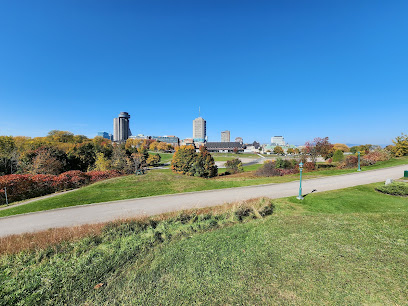
Notre-Dame de Québec Basilica-Cathedral
Discover Canada's oldest church, a UNESCO World Heritage Site in the heart of Old Québec, with stunning architecture and rich history.
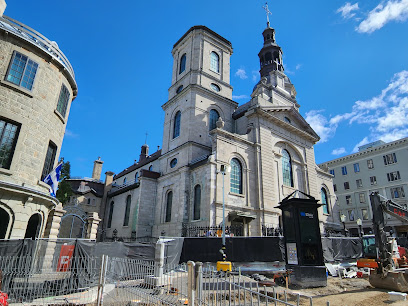
Funiculaire du Vieux-Québec
Experience a unique ride between Upper and Lower Town with stunning views of Quebec City's historic district and the St. Lawrence River.
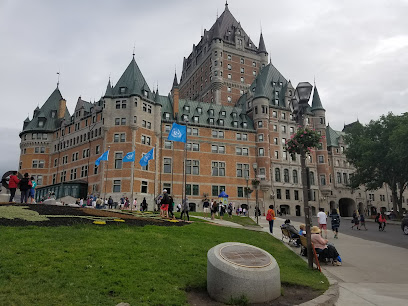
Place Royale
Explore Place Royale in Quebec City, where history, culture, and stunning architecture come together in a vibrant tourist attraction.
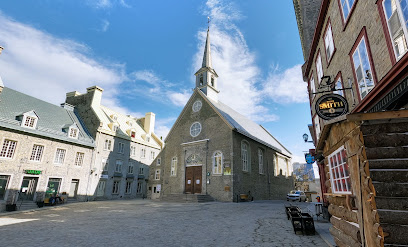
Dufferin Terrace
Discover the stunning Dufferin Terrace in Quebec City, a historical landmark with breathtaking views and a vibrant atmosphere, perfect for every traveler.
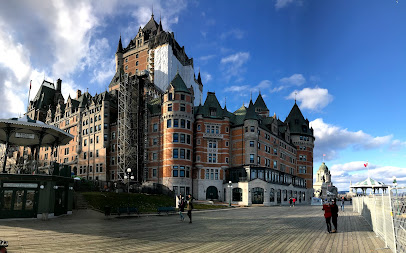
The Plains of Abraham Museum
Explore the rich history of Canada at The Plains of Abraham Museum, where the past comes alive through engaging exhibits and stunning landscapes.
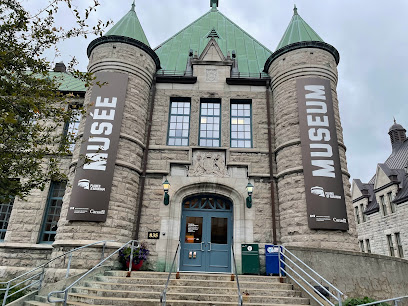
Observatoire de la Capitale
Unveil the breathtaking skyline of Quebec City at the Observatoire de la Capitale, where history, culture, and stunning views converge in one unforgettable experience.
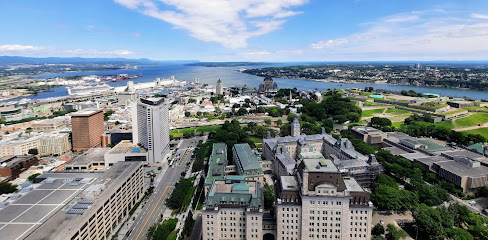
Quebec City Mural
Experience the captivating Quebec City Mural, a vibrant art piece celebrating the city's rich history and artistic spirit.
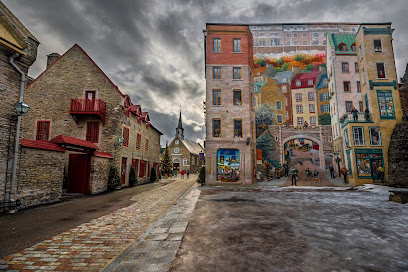
Unmissable attractions to see
Fairmont Le Château Frontenac
Experience the grandeur of Fairmont Le Château Frontenac, a historical landmark in Québec City offering stunning views, luxury accommodations, and rich heritage.

Aquarium of Quebec
Explore the captivating underwater world at the Aquarium of Quebec, a national museum showcasing thousands of marine species in a stunning setting.
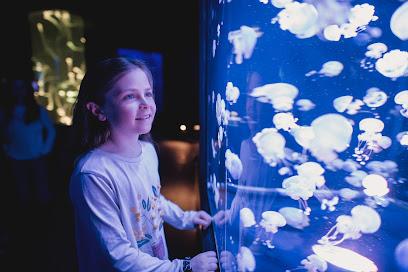
Aquarium of Quebec
Explore the wonders of the underwater world at the Aquarium of Quebec, home to thousands of marine species and interactive exhibits for all ages.
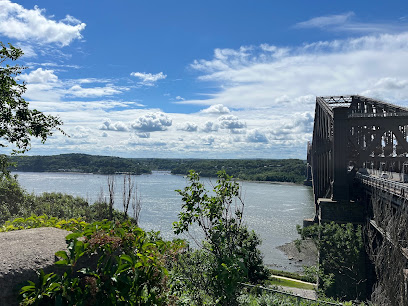
The Citadelle of Québec
Experience the rich history and stunning views at The Citadelle of Québec, a majestic fortress and a symbol of Canada's military heritage.
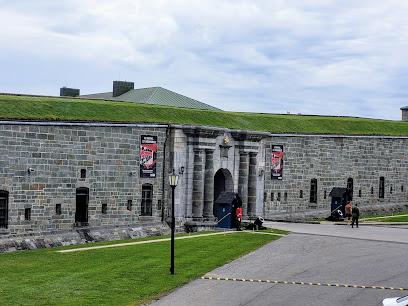
Plains of Abraham
Explore the historic Plains of Abraham, a picturesque park in Québec City, steeped in history and natural beauty, perfect for leisurely strolls and cultural experiences.
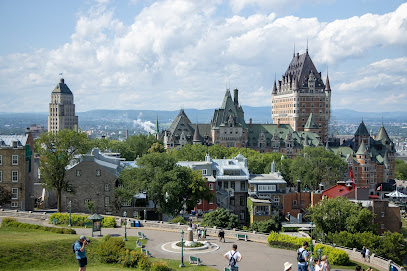
Sanctuaire Sainte-Anne-de-Beaupré
Experience the spiritual serenity and architectural beauty of the Sanctuaire Sainte-Anne-de-Beaupré, a must-visit basilica in Quebec.
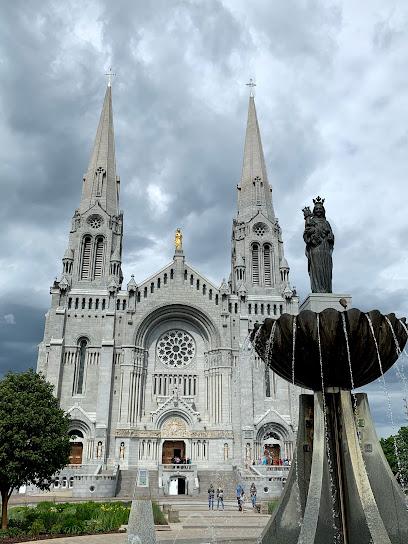
Museum of Civilization
Explore Quebec's vibrant history and culture at the Museum of Civilization, an interactive and engaging experience for all ages.
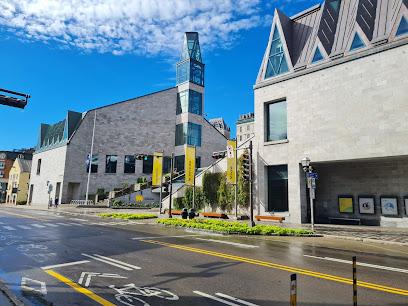
Videotron Centre
Discover the exhilarating atmosphere of Videotron Centre, where sports, concerts, and unforgettable experiences come alive in the heart of Québec City.
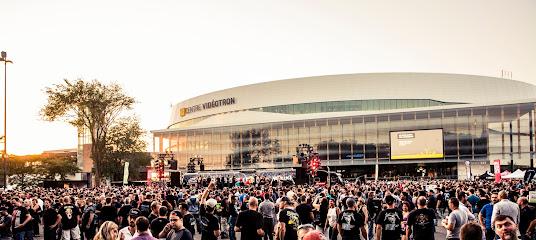
Quartier Petit Champlain
Explore the enchanting Quartier Petit Champlain, a historic shopping district in Quebec City filled with boutiques, cafes, and cultural experiences.
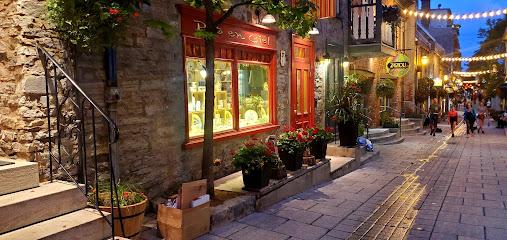
Parc national de la Jacques-Cartier
Discover the majestic beauty of Parc national de la Jacques-Cartier, a haven for outdoor lovers and a perfect escape into nature's tranquility.
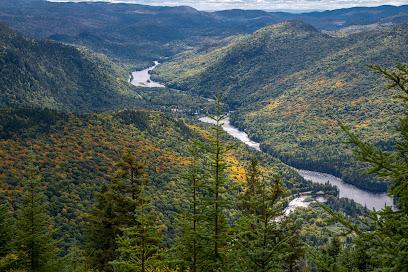
Place D'Youville
Explore the beauty and history of Place D'Youville, a must-visit park in Quebec City that offers scenic views and a vibrant atmosphere for all ages.
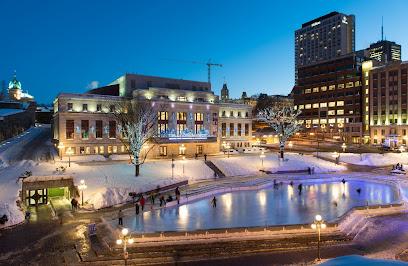
Domaine de Maizerets
Discover the enchanting landscapes of Domaine de Maizerets, a picturesque state park in Québec City offering trails, wildlife, and rich history.
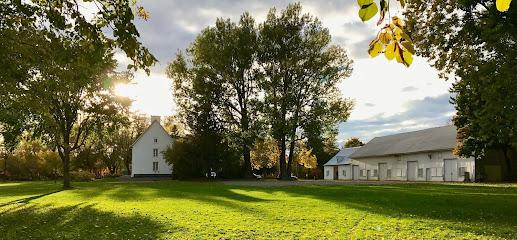
The Battlefields Park
Explore the historic Battlefields Park, a serene blend of nature and history in the heart of Québec City, where every step tells a story.
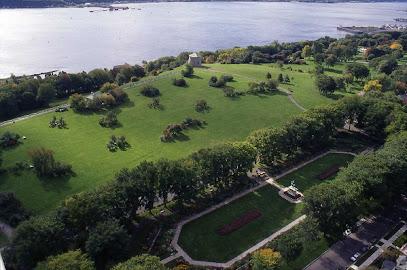
Notre-Dame de Québec Basilica-Cathedral
Explore the stunning architecture and rich history of Notre-Dame de Québec Basilica-Cathedral, a must-see spiritual landmark in Old Québec.
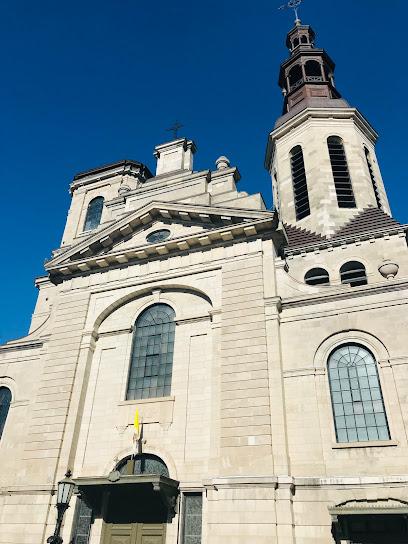
Musée national des beaux-arts du Québec
Immerse yourself in the vibrant art and culture of Quebec at the Musée national des beaux-arts du Québec, a must-visit for every traveler.
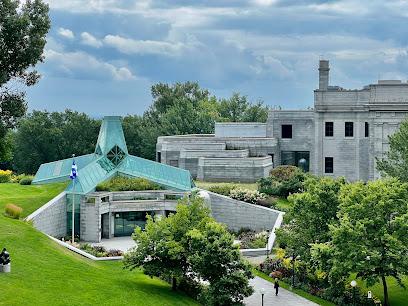
Essential places to dine
Restaurant La Buche
Experience authentic Québécois cuisine at Restaurant La Buche - where every dish tells a story of local tradition.
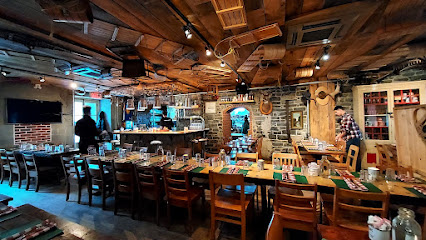
Cochon Dingue Champlain
Discover Cochon Dingue Champlain: A charming French restaurant offering exquisite local cuisine in the heart of Québec City.
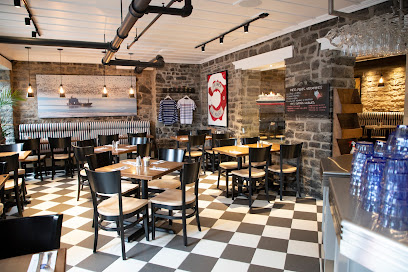
Ciel! Bistro-bar
Discover exquisite fine dining at Ciel! Bistro-bar in Québec City, where culinary artistry meets breathtaking views for an unforgettable experience.
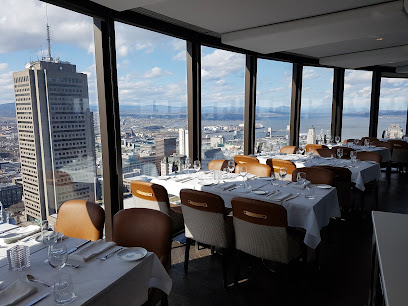
Le Bureau de Poste
Discover Le Bureau de Poste: A charming restaurant in Québec City offering delicious Canadian cuisine and a warm atmosphere perfect for any occasion.
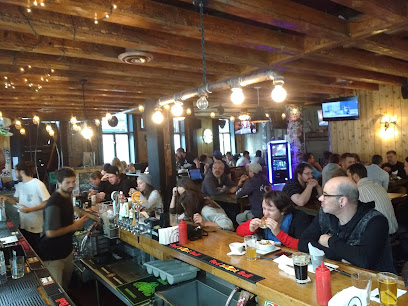
Le Chic Shack
Experience gourmet burgers and local flavors at Le Chic Shack in beautiful Québec City – a must-visit dining destination.
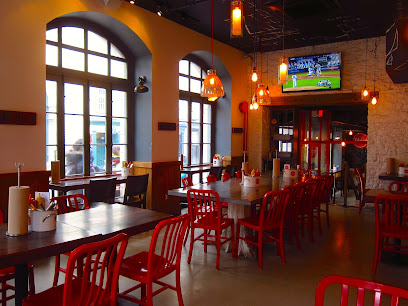
L'Antiquaire Buffet
Discover authentic Canadian cuisine at L'Antiquaire Buffet in Québec City—where tradition meets taste in a cozy atmosphere.
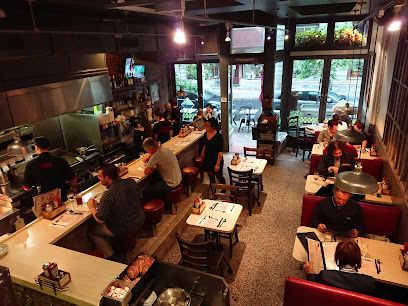
Le Lapin Sauté
Discover authentic French cuisine in Old Quebec at Le Lapin Sauté, known for its exquisite rabbit dishes and charming atmosphere.
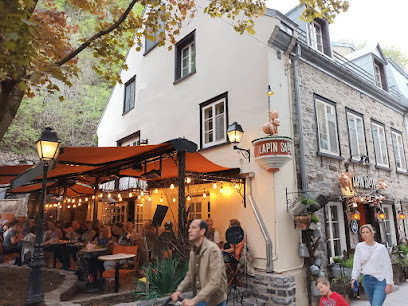
Sapristi...bistro bar
Experience authentic Italian flavors at Sapristi...bistro bar in Québec City—where every meal tells a story.
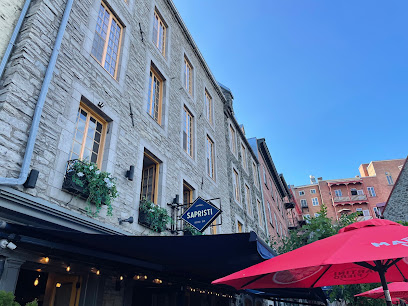
Aux Anciens Canadiens
Experience authentic Québécois cuisine at Aux Anciens Canadiens in Quebec City – where tradition meets taste in an unforgettable dining experience.
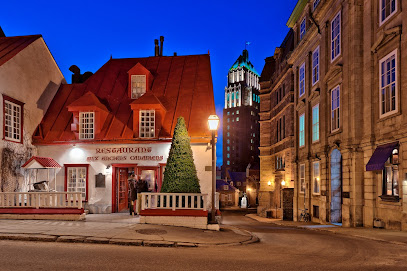
Le Café du Monde
Experience the charm of Le Café du Monde in Québec City—savor exquisite French cuisine and delightful pastries in an inviting atmosphere.
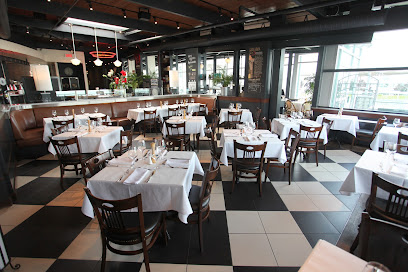
L'Atelier
Discover exquisite flavors at L'Atelier, where modern cuisine meets classic French elegance in Quebec City.
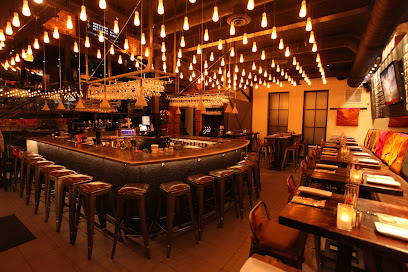
Chez Boulay-bistro boréal
Discover Quebec's culinary heritage at Chez Boulay-bistro boréal, where local flavors meet modern elegance in every dish.
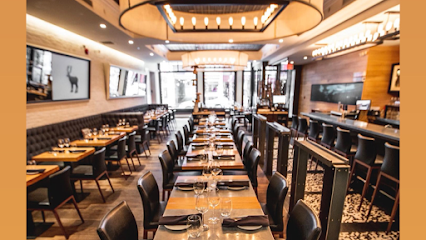
Portofino Brasserie Italienne
Experience authentic Italian cuisine at Portofino Brasserie Italienne in Quebec City - where every meal feels like a celebration.
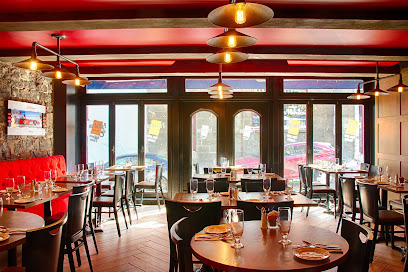
Parmesan Restaurant
Experience exceptional Italian cuisine at Parmesan Restaurant in Quebec City—where flavor meets ambiance with live music and delightful desserts.
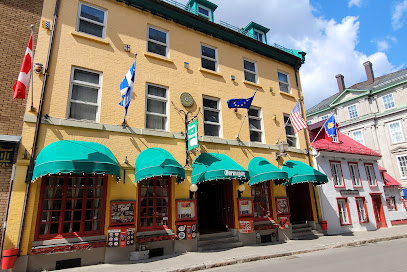
Bello Ristorante
Experience the essence of Italy at Bello Ristorante - where authentic flavors meet exceptional service in Québec City.
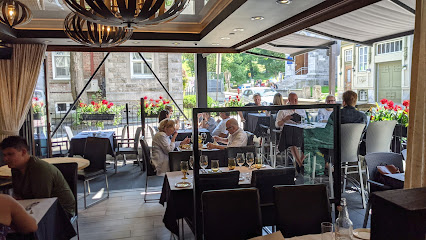
Markets, malls and hidden boutiques
Galeries de la Capitale
Explore Galeries de la Capitale, Québec City's premier shopping mall, offering an endless array of stores, dining, and entertainment for the whole family.
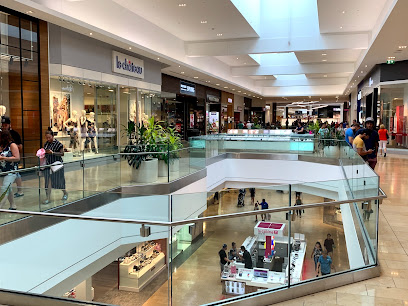
Laurier Quebec
Discover a shopping haven at Laurier Quebec, where fashion meets fun in the heart of Quebec City, offering an extensive mix of stores and dining options.
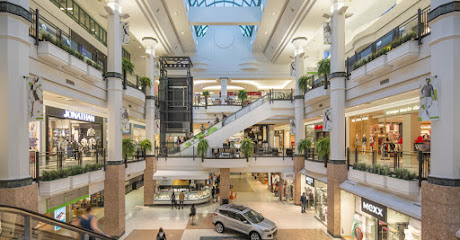
Place de la Cité
Discover a vibrant shopping experience at Place de la Cité, where fashion, dining, and entertainment come together in Québec City.
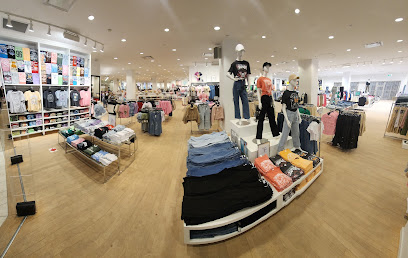
La Boutique de Noël de Québec
Discover La Boutique de Noël de Québec, a magical gift shop offering festive decorations and unique souvenirs in the heart of Old Quebec.
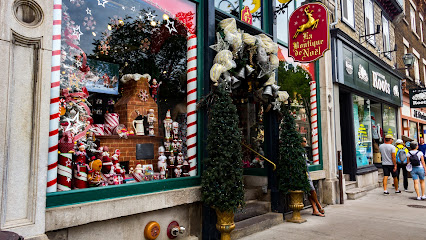
La Maison Simons
Discover La Maison Simons in Old Quebec: Your destination for exquisite men's and women's fashion and accessories.
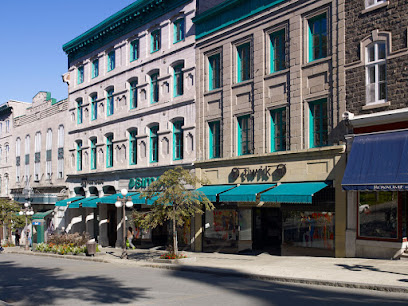
Promenades Du Vieux Quebec
Discover unique shops and local culture at Promenades Du Vieux Quebec, a historic shopping mall in the heart of Old Quebec.
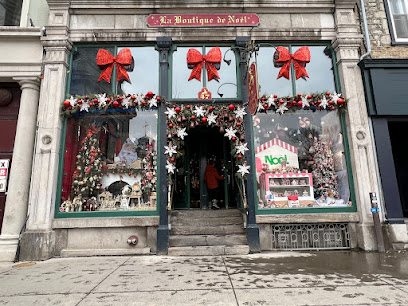
Urban Outfitters
Explore Urban Outfitters in Québec City for trendy fashion, unique accessories, and stylish home goods in a vibrant shopping atmosphere.
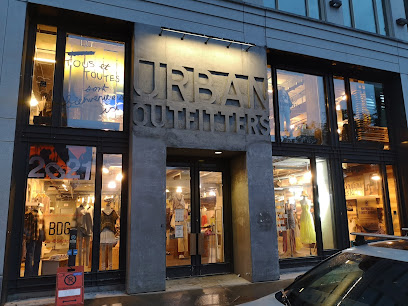
Magasin Général P L Blouin - Gift Shop - Souvenirs - Maple Syrup - Novelty T-Shirts - Record Shop
Explore Magasin Général P L Blouin: Your one-stop shop for unique souvenirs, local art, and music treasures in the heart of Québec City.
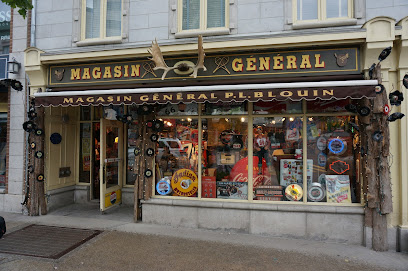
Boutique métiers d'art du Québec
Explore the rich artistry and craftsmanship of Québec at Boutique Métiers d'Art – a must-visit gift shop for unique local treasures.
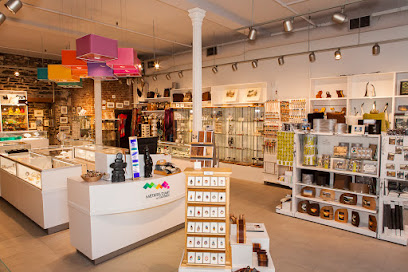
Article 721
Explore Article 721 in Québec City for unique gifts and local artisan treasures that embody the spirit of this historic region.
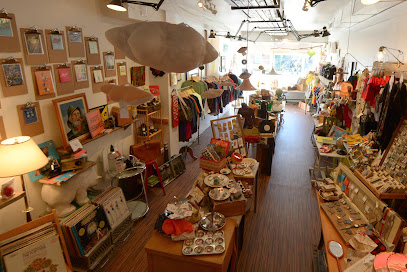
Cool As A Moose
Explore Cool As A Moose in Québec City for unique souvenirs and local crafts that reflect the charm and spirit of the region.
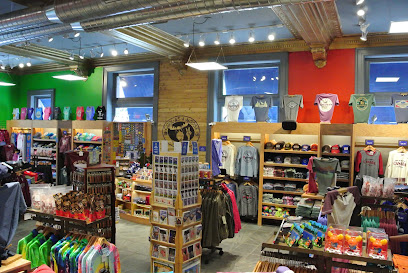
Artisans Bas-Canada Inc
Explore the heart of Québec City at Artisans Bas-Canada, where local craftsmanship meets unique shopping in a charming boutique atmosphere.
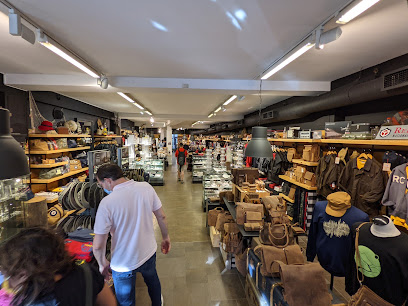
Boutique La Chasse-galerie
Explore Boutique La Chasse-galerie, a treasure trove of local crafts and artisanal products in the heart of Québec City.
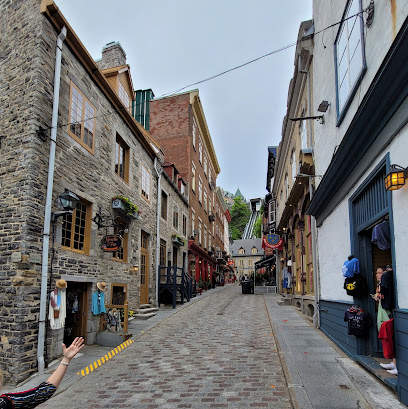
Boutique Pot-En-Ciel Enr
Explore Boutique Pot-En-Ciel Enr in Quebec City's Petit Champlain district for unique local gifts and artisanal treasures.
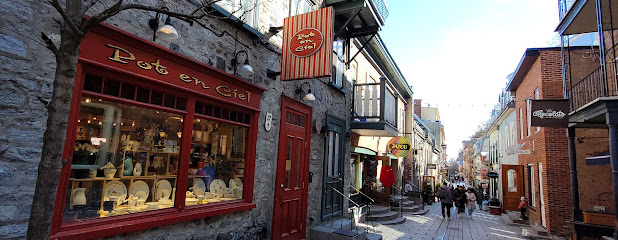
La Cinquième Saison
Explore La Cinquième Saison in Québec City for unique local gifts, handcrafted items, and authentic souvenirs that embody the spirit of the region.
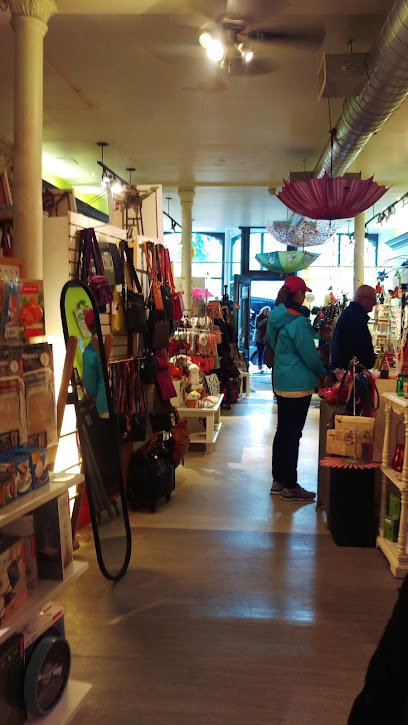
Essential bars & hidden hideouts
Pub St-Patrick
Discover the vibrant atmosphere of Pub St-Patrick, an Irish pub in Quebec City offering hearty meals and a lively ambiance for an unforgettable experience.
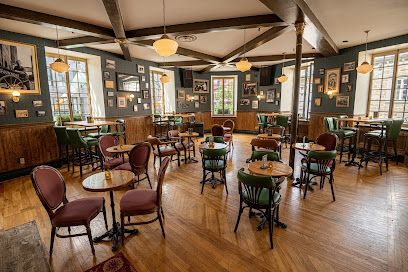
Pub St-Alexandre
Discover the best of local brews and hearty meals at Pub St-Alexandre, a vibrant brewpub in the heart of Québec City.
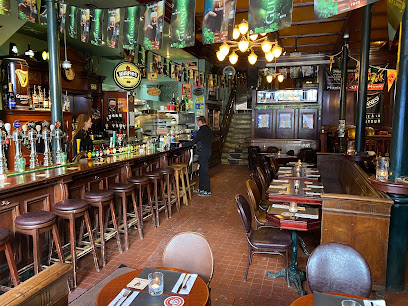
Pub L'Oncle Antoine
Discover the charm of Pub L'Oncle Antoine, a cozy pub in Québec City offering local cuisine, craft beverages, and a warm atmosphere.
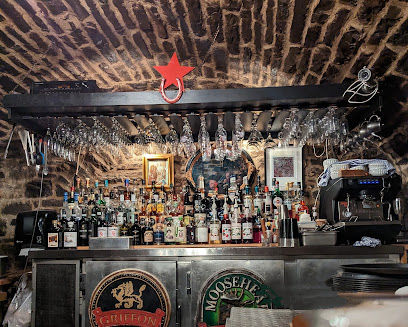
Bar Le Sacrilège
Experience the vibrant nightlife of Quebec City at Bar Le Sacrilège, a beloved pub offering an extensive drinks menu and a lively atmosphere.
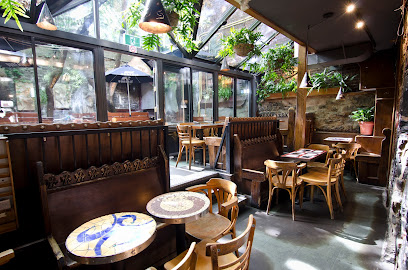
Ninkasi Bar & Bistro
Experience the lively atmosphere of Ninkasi Bar & Bistro in Québec City, where great food, beer, and entertainment come together.
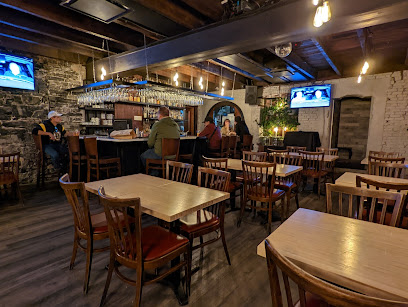
Louise Taverne & Bar à Vin
Discover the culinary delights of Louise Taverne & Bar à Vin in Québec City, where local flavors and fine wines create an unforgettable dining experience.
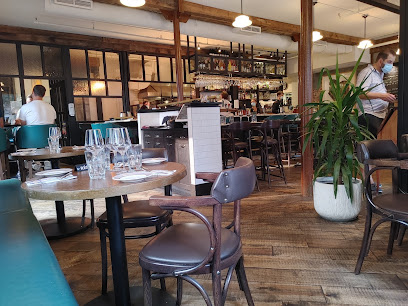
Quartier Général - Bar Spectacle - Wine Cocktails - Terrasse
Experience the vibrant nightlife of Québec City at Quartier Général, where delicious cocktails and live music create unforgettable moments.
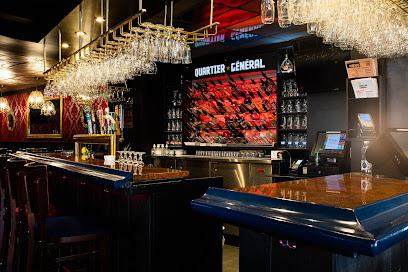
Beclub
Discover Beclub, a captivating bar and restaurant in Québec City offering shared plates, exquisite wines, and an inviting atmosphere for all visitors.
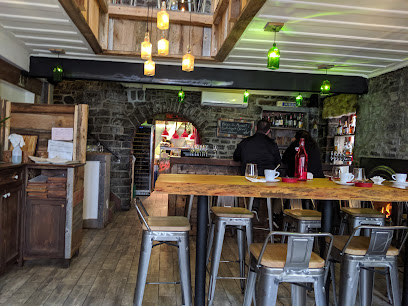
Pub Borgia
Experience the vibrant atmosphere of Pub Borgia, a charming pub in Quebec City offering local craft beers and hearty meals in a cozy setting.
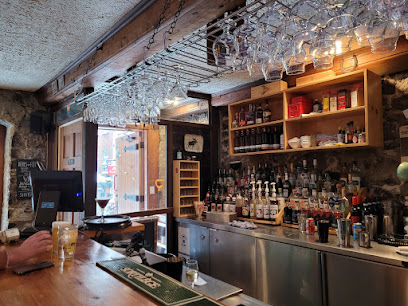
Bar Ste-Angèle
Experience the soulful rhythms of live jazz at Bar Ste-Angèle, a cozy bar in the heart of Quebec City, offering a warm atmosphere and delightful drinks.
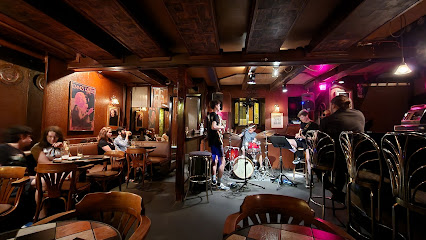
Bar Les Yeux Bleus
Experience the vibrant nightlife of Québec City at Bar Les Yeux Bleus, a cocktail bar and nightclub known for its delicious drinks and energetic atmosphere.
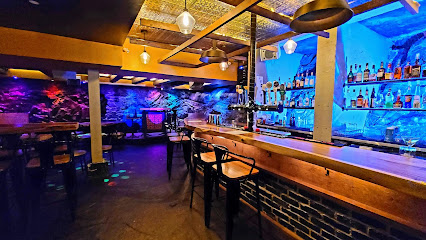
Fou-Bar
Discover Fou-Bar, a vibrant bar and coffee shop in Québec City, where delicious drinks and a friendly atmosphere await every visitor.
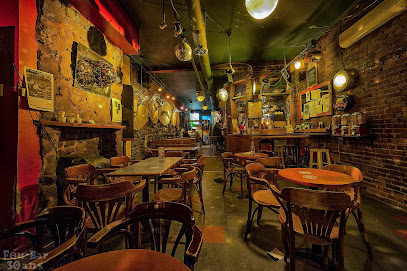
Bar 1608
Experience the charm of Quebec City at Bar 1608, where exquisite drinks meet a cozy, elegant atmosphere.
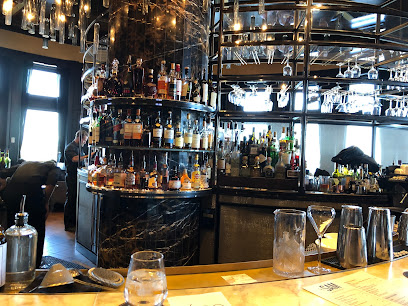
Le Jardin cocktails et bières
Experience the vibrant nightlife at Le Jardin Cocktails et Bière, a must-visit bar in Québec City for unique drinks and great ambiance.
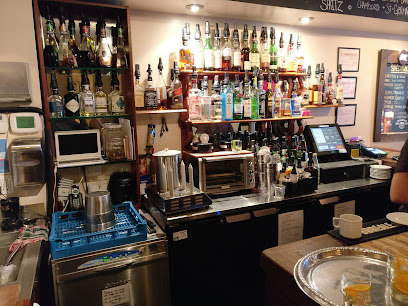
Local Phrases
-
- HelloBonjour
[bon-zhoor] - GoodbyeAu revoir
[oh ruh-vwahr] - YesOui
[wee] - NoNon
[noh] - Please/You're welcomeS'il vous plaît / De rien
[seel voo pleh / duh ryehn] - Thank youMerci
[mehr-see] - Excuse me/SorryExcusez-moi / Désolé
[ex-kyew-zay mwah / day-zo-lay] - How are you?Comment ça va?
[koh-mohn sah vah] - Fine. And you?Bien. Et toi?
[byehn. ay twah] - Do you speak English?Parlez-vous anglais?
[par-lay voo ahn-glay] - I don't understandJe ne comprends pas
[zhuh nuh kohm-prahnd pah]
- HelloBonjour
-
- I'd like to see the menu, pleaseJe voudrais voir le menu, s'il vous plaît
[zhuh voo-dray vwahr luh meh-nyoo, seel voo pleh] - I don't eat meatJe ne mange pas de viande
[zhuh nuh mahnj pah duh vyand] - Cheers!Santé!
[sahn-tay] - I would like to pay, pleaseJe voudrais payer, s'il vous plaît
[zhuh voo-dray pay-yay, seel voo pleh]
- I'd like to see the menu, pleaseJe voudrais voir le menu, s'il vous plaît
-
- Help!À l'aide!
[ah layd] - Go away!Allez-vous en!
[ah-lay vooz ahn] - Call the Police!Appelez la police!
[ah-peh-lay lah plees] - Call a doctor!Appelez un médecin!
[ah-peh-lay uh may-deh-sahn] - I'm lostJe suis perdu
[zhuh swee pair-doo] - I'm illJe suis malade
[zhuh swee mah-lahd]
- Help!À l'aide!
-
- I'd like to buy...Je voudrais acheter...
[zhuh voo-dray zah-shay] - I'm just lookingJe regarde juste
[zhuh ruh-gard zhew-stuh] - How much is it?Combien ça coûte?
[kohm-byen sah koot] - That's too expensiveC'est trop cher
[say troh shair] - Can you lower the price?Pouvez-vous baisser le prix?
[poo-veh voo beh-say luh pree]
- I'd like to buy...Je voudrais acheter...
-
- What time is it?Quelle heure est-il?
[kell ur ay-teel] - It's one o'clockIl est une heure
[eel ay tun ur] - Half past (10)Dix heures et demie
[dees ur ay duh-mee] - MorningMatin
[mah-tahn] - AfternoonAprès-midi
[ah-pray-mee-dee] - EveningSoir
[swahr] - YesterdayHier
[yehr] - TodayAujourd'hui
[oh-zhoor-dwee] - TomorrowDemain
[duh-mahn] - 1Un
[uhn] - 2Deux
[duh] - 3Trois
[twah] - 4Quatre
[kah-truh] - 5Cinq
[sank] - 6Six
[sees] - 7Sept
[sept] - 8Huit
[wheat] - 9Neuf
[nuff] - 10Dix
[dees]
- What time is it?Quelle heure est-il?
-
- Where's a/the...?Où est...?
[oo ay] - What's the address?Quelle est l'adresse?
[kell ay lah-dress] - Can you show me (on the map)?Pouvez-vous me montrer (sur la carte)?
[poo-veh voo muh mohn-tray (soor lah kart)] - When's the next (bus)?Quand est le prochain (bus)?
[kahn ay luh proh-shahn (bus)] - A ticket (to ....)Un billet (pour ....)
[uhn bee-yay (poor)]
- Where's a/the...?Où est...?
History of Quebec City
-
Quebec City was founded by Samuel de Champlain in 1608, establishing it as one of the oldest European settlements in North America. The city was originally a trading post and quickly grew into a strategic military and economic hub due to its location along the Saint Lawrence River.
-
A pivotal moment in Quebec City's history, the Battle of the Plains of Abraham took place on September 13, 1759. This battle saw British forces under General James Wolfe defeat the French troops led by General Louis-Joseph de Montcalm. The British victory marked the beginning of British control over New France.
-
Following the British victory in the Seven Years' War, the Treaty of Paris was signed in 1763. This treaty ceded control of New France, including Quebec City, from France to Great Britain, fundamentally changing the political landscape of the region.
-
The Quebec Act of 1774 was a significant piece of legislation that redefined the governance of Quebec. It allowed the French-speaking population to maintain their language, religion, and legal system, which helped to preserve the cultural identity of the region under British rule.
-
The Citadelle of Quebec, a large fortress, was constructed between 1820 and 1850 to protect the city from potential American invasions. This fortress remains an important historical and military site, symbolizing the strategic importance of Quebec City in North American history.
-
The Quebec Conference of 1864 was a critical event in the formation of Canada. Leaders from various British North American colonies met in Quebec City to discuss the confederation of Canada, leading to the creation of the Dominion of Canada in 1867.
-
In 1985, the Historic District of Old Quebec was designated a UNESCO World Heritage Site. This recognition highlights the city's well-preserved architecture and its importance as a cultural and historical treasure, attracting tourists from around the world.
Quebec City Essentials
-
Quebec City is accessible via Jean Lesage International Airport (YQB), which is located about 13 kilometers from the city center. The airport offers flights from major North American cities. Alternatively, you can reach Quebec City by train through VIA Rail, with connections from Montreal and other Canadian cities. For those driving, the city is well-connected by highways, including Highway 20 and Highway 40, which link Quebec City to Montreal and the rest of the province.
-
Quebec City has an efficient public transportation system operated by RTC (Réseau de transport de la Capitale), which includes buses and a free ferry service across the St. Lawrence River. Taxis and rideshare services like Uber are also readily available. For those who prefer cycling, there are bike-sharing programs, and the city is quite pedestrian-friendly, especially in the Old Quebec area. Car rentals are available but may not be necessary unless you plan to explore the surrounding regions.
-
The official currency in Quebec City is the Canadian Dollar (CAD). Credit cards are widely accepted in hotels, restaurants, and shops. It's advisable to carry some cash for smaller establishments and markets. ATMs are plentiful throughout the city for convenient cash withdrawal. Tipping is customary in Quebec City, generally 15-20% for services in restaurants, taxis, and other service industries.
-
Quebec City is considered one of the safest cities in Canada. However, tourists should still exercise standard precautions. Avoid poorly lit areas at night and be cautious with your belongings in crowded places. Areas such as Limoilou and Saint-Roch, while increasingly popular for their nightlife and culture, may have higher petty crime rates, so stay vigilant.
-
In case of an emergency, dial 911 for immediate assistance. This number connects you to police, fire services, and medical emergencies. Quebec City has several hospitals, including the Hôtel-Dieu de Québec and the CHUL (Centre Hospitalier Universitaire de Laval). Pharmacies are also widely available for minor health issues. It is recommended to have travel insurance that covers medical emergencies.
-
Fashion: Do dress in layers, especially in winter, as temperatures can drop significantly. Avoid overly casual attire in fine dining establishments. Religion: Do respect local Catholic customs when visiting churches; remove hats and keep noise to a minimum. Public Transport: Do have exact change or a pre-paid card for bus fares. Don't play loud music or talk loudly. Greetings: Do greet with a polite 'Bonjour' or 'Bonsoir'. A handshake is common in formal settings. Eating & Drinking: Do try local specialties such as poutine and tourtière. Don't rush meals; dining is often a leisurely activity in Quebec.
-
To experience Quebec City like a local, visit the farmer's markets such as Marché du Vieux-Port for fresh produce and local delicacies. Explore the city's vibrant art scene by visiting galleries and the Musée national des beaux-arts du Québec. Don't miss the summer Festival d'été de Québec for live music and performances. Engage with locals in French, even basic phrases are appreciated and often lead to more engaging interactions.
Trending Landmark in Quebec City
-
Montmorency Falls
-
Fairmont Le Château Frontenac
-
Plains of Abraham
-
The Citadelle of Québec
-
Quartier Petit Champlain
-
Place D'Youville
-
Domaine de Maizerets
-
The Battlefields Park
-
Notre-Dame de Québec Basilica-Cathedral
-
Funiculaire du Vieux-Québec
-
Place Royale
-
Dufferin Terrace
-
The Plains of Abraham Museum
-
Observatoire de la Capitale
-
Quebec City Mural
Nearby Cities to Quebec City
-
Things To Do in Halifax
-
Things To Do in Montreal
-
Things To Do in Waterville
-
Things To Do in Stowe
-
Things To Do in Bangor
-
Things To Do in Augusta
-
Things To Do in Burlington
-
Things To Do in Montpelier
-
Things To Do in Lewiston
-
Things To Do in Camden
-
Things To Do in Brunswick
-
Things To Do in Rockland
-
Things To Do in Middlebury
-
Things To Do in Lake Placid
-
Things To Do in Hanover

















